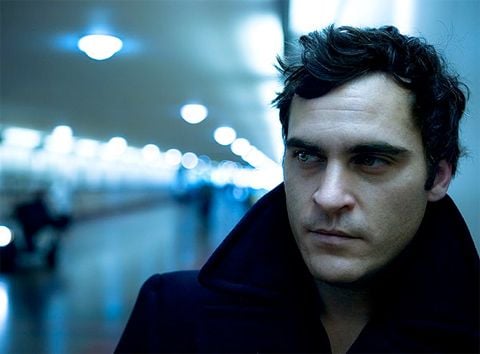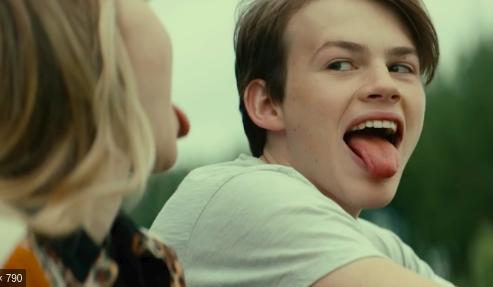
100 Best Movies on Roku Channel Right Now
April 23, 2025
Share:
If you’re a movie buff seeking a solid selection of movies on-demand, look no further than the Roku Channel. The free platform offers a unique selection of titles to choose from, including modern classics and arthouse picks alike. To guide you through the vast movie catalog, here’s our round-up of the top movies to stream right now on the Roku Channel.
Read also:
71. Hoop Dreams (1994)
Genres
Director
Actors
Don’t be fooled—despite being a three-hour documentary, Hoop Dreams is just as thrilling, heartbreaking, and cinematic as any sports film out there. Unlike them, however, Hoop Dreams is less of an uplifting feel-good story than it is an honest and sobering look at how the education system has failed Black communities. It’s not a complete downer, though, since we follow two hardworking and inspiring boys committed to lifting their families from poverty. While more privileged players can afford to treat basketball as a hobby, to Arthur and William, basketball is a lifeline, a rare chance to enjoy better opportunities and give their families a better life. Imagine carrying that on your shoulders while training, studying, looking for colleges, and surviving teenhood. It’s a lot, but director Steve James weaves it all beautifully. James divides the chapter into freshman, sophomore, junior, and senior years, following Arthur and William as they start on the same footing, diverge and live parallel lives (one in private school, the other in public), and eventually meet again during their final years in school. Their journeys are riveting, not least because we also get to know their families, friends, hopes, and dreams. This is riveting cinema, as socially conscious as it is competitively thrilling.
72. Song Lang (2018)
Genres
Director
Actors
Moods
At the first few moments, Song Lang seemed to be something akin to Farewell My Concubine– the film takes a snapshot of a communist Asian country in a different time, through the lens of a regional opera form with painted faces, elaborate costumes, and captivating tunes. But there’s more to Song Lang than this. Tragedy isn’t prophesized through songs of an already existing opera (in fact, the film features all new tunes), but instead, it occurs because Dung, the loan shark, didn’t reflect on the past early enough for him to reclaim the art form his family once loved, a concern shared with cải lương as a declining genre. Song Lang is a moving drama, but it’s also a nostalgic time capsule of 1980s Saigon and cải lương as a whole.
Read also:
73. Frank (2014)
Genres
Director
Actors
Moods
A really weird and also heartwarming movie about Frank, the leader and singer/songwriter of a crazy band. He really grows on you with his big head. If you like movies with that funky edge (like Scott Pilgrim) this is especially something for you! Either way and regardless of your preferences, you’ll find Frank to be a sweet, sincere, likable and clever comedy.
74. Trollhunter (2010)
Genres
Director
Actors
Moods
Filmed as a “found footage” of a Norwegian college film crew investigating local poachers, this movie really surprised me. To be fair, I didn’t really know what to expect. But I definitely didn’t expect to like this movie as much as I did. The pacing is on point. The suspense hits you at just the right times. There are a few drops of humour trickled throughout to keep a smile on your face. And that’s how my face stayed when the credits rolled.
75. Two Lovers (2008)
Genres
Director
Actors
Moods
This is the most practical romantic movie I have seen though many would disagree with its ending. It’s a triangular love story that trades cashable means of storytelling with a much more sensible approach. After a failed relationship, Leonard Kraditor (Joaquin Phoenix) returns to live with his parents only to find himself torn again between an exciting neighbor and a woman his parents set him up with. Phoenix delivers an impeccable performance as it goes without saying but Gwyneth Paltrow and Vinessa Shaw really steal the show as the two love interests. They both deliver honest and very interesting portrayals. All in all, Two Lovers is a complex and very well-acted film that goes as far as examining the notion of love, and what we look for in people, through seemingly a simple story.
76. Carol (2015)
Genres
Director
Actors
Moods
Watching Carol is like reading a really interesting book while relaxing on a Sunday afternoon. It is one of those movies that you probably heard about during its Oscar run, and have since delayed actually viewing it. Well now that it is on Netflix and other streaming services you have no excuse! It’s refreshingly unique, incredibly charming, and features a kind of story that hasn’t been told very often – a love story between two women. Both characters played by Cate Blanchett and Rooney Mara attempt to live true to their own principles while facing unjust yet severe backlash from society. If you are open to it, the love story in this will stay with you forever.
77. Giant Little Ones (2018)
Genres
Director
Actors
Moods
An insightful and thoughtful Canadian coming-of-age drama, Giant Little Ones is about two seventeen-year-old best friends whose relationship changes after an incident one night. Spanning a quick 90 minutes, it manages to tell its story quickly and honestly, as it touches on themes of sexual identity not only for the teenagers but for their parents as well. And it has a great message about tolerance. It’s a lovely and wholesome movie.
78. The World Before Your Feet (2018)
Genres
Director
Actors
Moods
An incredible documentary about Matt Green, a man who decided to walk every street in New York City. That’s more than 8000 miles (more than the diameter of Earth) that he had been walking for six years up to the point of making this movie.
Matt stops. And that’s the beauty of this documentary, where the filmmaker joins him for part of the journey. You quickly realize that the intrigue is not so much about Matt’s challenge, but about who he meets and what kind of experiences he goes through. You also realize (if you didn’t already) that New York is a place of unimaginable size, with incredibly lively and diverse human stories. Plus lots of other forms of life too: Matt doesn’t have a fixed place, so he cat-sits for shelter.
Fun fact: this is the first movie that actor Jesse Eisenberg ever produced!
79. Us and Them (2018)
Genres
Director
Actors
Moods
Us and Them follows two former lovers who reminisce and reassess their decade-long relationship over one night. They both seem to be in better places, certainly financially if anything else, but their shared wistfulness for the past threatens to prove otherwise.
The film was an immediate hit when it was first released in China, and it’s easy to see why. With just the right balance of realism, romance, and comedy, the movie makes for a simple but deeply moving and involving watch. You can’t help but root for the exes to get back together, even though you know as well as they do how minimal the chances of that happening are.
80. Control Room (2004)
Genres
Director
Actors
Moods
For the longest time, American media coverage was skewed to justify the presence of US forces in Arab states. Control Room unveils that bias by following Al Jazeera at the start of the Iraq War in 2003. One of the biggest Arab media outlets at the time, Al Jazeera dared to cover both sides of the war, but by doing so put a target on its back. It was vilified by both the US government, which called it an Osama mouthpiece and the Arab world, which called it a Bush ally.
Control Room shows the difficulty (if not sheer impossibility) of achieving journalistic balance, objectivity, and integrity. Through interviews with Al Jazeera reporters and US military officers, we witness how lines are blurred, loyalties are tested, and purpose is shifted in a state of war. A seminal work on media bias and press control, Control Room is vital and enlightening, a must-watch to understand the inner workings of the fourth estate.
Comments
Add a comment
Ready to cut the cord?
Here are the 12 cheapest Live TV streaming services for cord-cutting.
More lists
Lists on how to save money by cutting the cord.
Curated by humans, not algorithms.
© 2025 A Good Movie to Watch. Altona Studio, LLC, all rights reserved.











